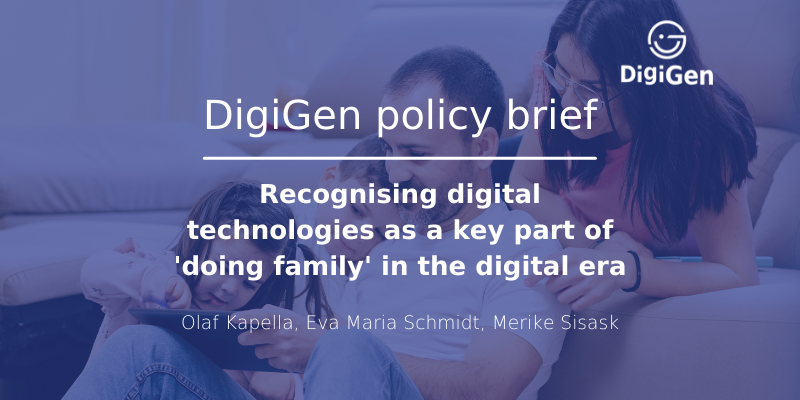Our data confirms that most children today live in media-rich families and are introduced to digital technologies in their early years. The common discourse focuses more on the need to reduce children’s screentime than it does on encouraging how digitalisation can positively contribute to family life. Doing family in the digital era can take many forms. Sharing a funny meme in the family group chat is doing family. Giving a child a tablet to play Roblox on whilst you cook dinner is a form of care in doing family. Teaching your grandmother how to set up email so you can stay in touch is doing family. Families need support in maximalising the possibilities for doing family through digital technologies. These experiences can be valuable for children and family members of all ages, even young children.
This policy brief aims to support policy makers, the digital technology industry, and family practitioners in recognising how digital technologies can play a meaningful part in ‘doing family’ in the digital era.
Some families may believe that heavily restricting their children’s ICT use keeps them safer, but instead plays the opposite role. Our data shows that developing children and parents’ digital competences is the key to reducing potential vulnerabilities. These digital competences can be boosted through the exercise of certain family practices such as including everyone, including children, in deciding how the family uses digital technologies.
DigiGen defines the following recommendations:
- Building and improving children’s digital competences in the family from an early age onward to ensure their well-being and to avoid increasing and creating (new) vulnerabilities of children.
- Promoting the exploitation of the full potential of digital technologies as one way to support ‘doing family’ in everyday family life.
- Supporting all children in having access to the digital world to ensure children’s rights.
- Support and encourage researching young children through participatory and multiple-perspective approaches.
Supporting families in navigating digitalisation involves all actors to play their part. Take a look at our policy brief to see how we think policy makers, industry, and family practitioners can use their particular expertise and influence. The full policy brief can be found here.

